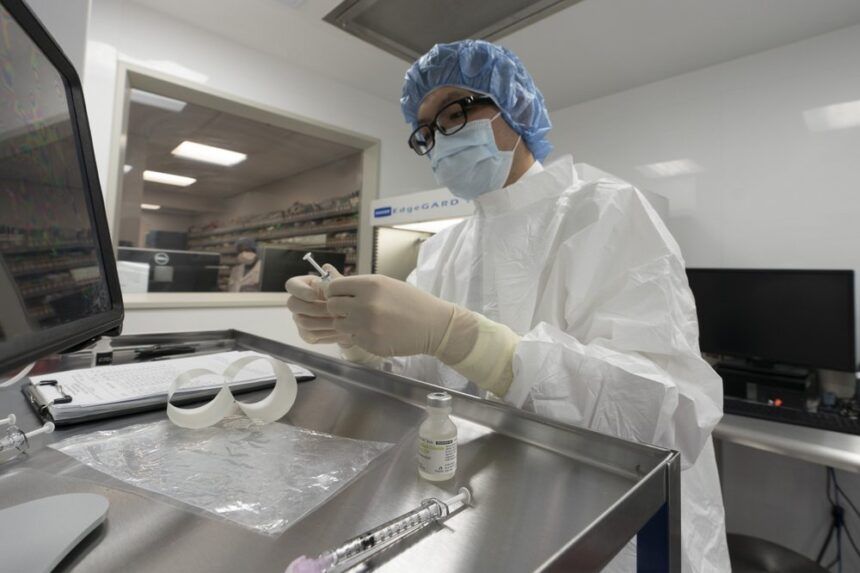US experts convene to decide whether to OK Pfizer vaccine

WASHINGTON (AP) A U.S. government advisory panel convened on Thursday to decide whether to endorse mass use of Pfizer’s COVID-19 vaccine to help conquer the outbreak that has killed close to 300,000 Americans.
The meeting of outside advisers to the Food and Drug Administration represented the next-to-last hurdle before the expected start of the biggest vaccination campaign in U.S. history. Depending on how fast the FDA signs off on the panel’s recommendation, shots could begin within days.
The FDA panel functions like a science court. During the scheduled daylong session, it was expected to debate and pick apart the data — in public — on whether the vaccine is safe and effective enough to be cleared for emergency use. With unprecedented interest in the normally obscure panel, the FDA broadcast the meeting via Youtube, and thousands logged on.
“The American public demands and deserves a rigorous, comprehensive and independent review of the data,” said FDA’s Dr. Doran Fink, who described agency scientists working nights, weekends and over Thanksgiving to get that done.
The FDA is not required to follow the committee’s advice but is widely expected to do so. Once that happens, the U.S. will begin shipping millions of doses of the shot.
Later this month, the FDA is expected to pass judgment on another vaccine, developed by Moderna and the National Institutes of Health, that has proved about as protective as Pfizer’s. Vaccine candidates by Johnson & Johnson and AstraZeneca are also in the pipeline.
The initial supplies from Pfizer and Moderna will be limited and reserved primarily for health care workers and nursing home patients, with other vulnerable groups next in line until the shots become widely available on demand, something that will probably not happen until the spring.
The meeting of experts on vaccine development, infectious diseases and medical statistics came as the coronavirus continues surging across much of the world, claiming more than 1.5 million lives, including about 290,000 in the U.S.
Hanging over the meeting was a warning from British officials that people with a history of serious allergic reactions shouldn’t get the vaccine. Government authorities there are investigating two reports of reactions that occurred on Tuesday when Britain became the first country in the West to begin mass vaccinations against the scourge.
Still, a positive recommendation and speedy U.S. approval appeared nearly certain after FDA scientists issued an overwhelmingly positive initial review of the vaccine earlier this week.